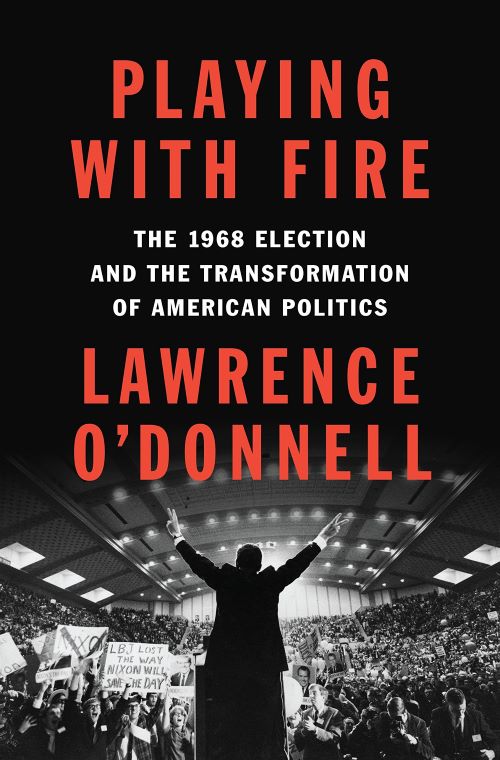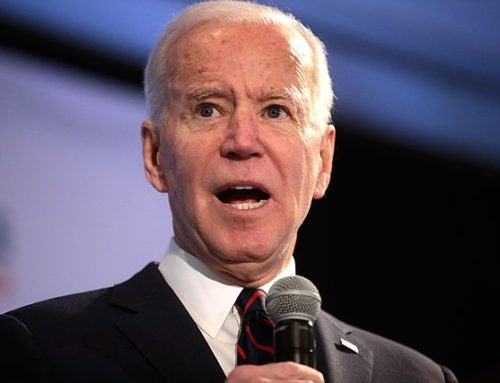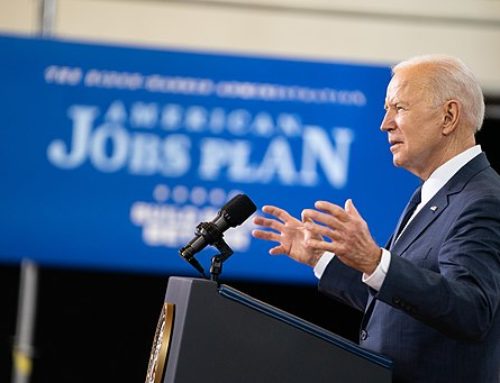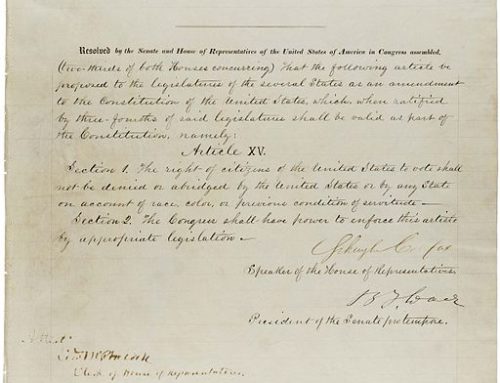Playing with Fire, The 1968 Election and the Transformation of American Politics
-By Lawrence O’Donnell
Introduction:
I feel compelled to write up my book review for several reasons. First of all, I was probably more engaged in the 1968 election than any subsequent one. Moreover, in those days, I was a Liberal Democrat who staunchly supported Eugene McCarthy and Hubert Humphrey (can you imagine having 2 leading presidential contenders from Minnesota). Even today, McCarthy and Humphrey have a place in my heart! Secondly, I despised George Wallace, Richard Nixon, and Lyndon Johnson at the time and now for their Vietnam policies. In addition Nixon and Wallace were anti-Semitic racists. Thirdly, today’s operation showed that I am cancer free; thus, for the foreseeable future I will be playing golf and writing!
Overview
The 1968 election changed Presidential politics forever, because we went from only 13 states having primaries to 50. Furthermore, the elimination of the unit rule reduced substantially the power of state powerbrokers that could no longer control 100% their state’s delegates.
O’Donnell’s book begins and ends with surprises. The book starts with testimony by Nicholas Katzenbach, U.S. Attorney General in the Johnson Administration. Katzenbach’s arrogant testimony that President Johnson had total authority to act with impunity in Vietnam so enraged Minnesota Senator Eugene McCarthy that the later henceforth decided to oppose Johnson’s Vietnam Policy, and therefore renounced his political alliance with Lyndon Johnson. In 1964, Johnson’s short list for Vice President was Hubert Humphrey and Eugene McCarthy.
The second surprise was Hubert Humphrey calling Richard Nixon and inviting him to come to Washington DC to attend Humphrey’s funeral. I am my mother’s son. Therefore, rather than calling Nixon, I would have killed him. Nixon not only committed treason to defeat Humphrey but as president ensured that 20,000 more Americans died in Vietnam because “like Lyndon Johnson, it was better that thousands of Americans die rather than “be the first president to lose a war.” Probably, from Nixon’s inauguration until his resignation, more than a million Vietnamese and Cambodians died because of our indiscriminate bombing. Moreover, there is overwhelming proof that if Nixon had not blocked Johnson’s peace efforts, American could have gotten just as good of terms in 1968 than we got in 1973.
Claire and Anna Chennault
Lyndon Johnson’s failure to point out that Richard Nixon was committing treason ultimately cost Humphrey the election. Specifically, Nixon got Anna Chennault, the widow of the leader of “Flying Tigers” Claire Chennault to block the Paris Peace Accords. The Republicans advised Saigon to refuse to participate in the talks promising a better deal once elected. Chennault phoned the South Vietnamese ambassador “Hold on, we are gonna win.” Bob Haldeman wrote a memo in which Nixon authorized “throwing a monkey wrench into Johnson’s peace negotiations.” By holding up the Paris Peace Accords until after the 1968 election, Nixon cost 20,000 more Americans their lives and millions of Cambodians and Vietnamese. Just as bad, Nixon did not achieve a better agreement in 1973.
Political Climate (1968)
Unlike today, both the Democratic Party and Republican Party had Liberals and Conservatives. I used to complain that the parties were “Twiddle Dee and Twiddle Dumb.” I now complain that we can get nothing done because nobody is in the middle!
For many years, the Eastern Establishment was very influential in the Republican Party. Let me mention some of the leading Republican Liberals in 1968—Mark Hatfield (Senator Oregon), John Lindsey (Mayor NYC), Nelson Rockefeller (Governor New York), Charles Percy (Senator Illinois) and Clifford Case (Senator New Jersey). Today, the Republican Party is almost entirely composed of Conservatives. With the exception of Susan Collins of Maine I cannot think of another Republican moderate.
By contrast in 1968, the Southern Democratic Conservative Politicians represented the Old Confederacy South and the Border States—West Virginia, Kentucky, Maryland, and Oklahoma.
Let us discuss the key figures in 1968
Allard Lowenstein (1929-1980) (Member of the U.S. House of Representatives. Lowenstein started the “Dump Johnson” movement. Lowenstein crisscrossed the nation, trying to get a reputable candidate to challenge Lyndon Johnson. His first choice was Senator Robert Kennedy of New York. After months of fruitless effort, Lowenstein convinced Senator Eugene McCarthy to take on the seemingly “thankless” task. It must be understood that in 1968, challenging incumbent President Lyndon Johnson was a “death wish.” Johnson seemed invincible and held a deathlike hold over anybody who challenged him.
Eugene McCarthy (1916-2005) was a Renaissance man in the mode of Adlai Stevenson. He played semi-pro baseball, composed and recited poetry, and was an idealist. In taking on the challenge of defeating Lyndon Johnson, McCarthy was following in the footsteps of Don Quixote. Initially, McCarthy has no financial resources nor backing of any senior Democratic politician, given Johnson’s tight control over the party.
McCarthy’s candidacy in New Hampshire was a lonely affair until the Tet Offensive (Launched Jan 30, 1968). This disciplined military campaign in over 100 cities in South Vietnam convinced many Americans that we could never defeat the communist insurgency and that the Johnson Administration had seriously misled us. As a result, thousands of students (Keep Clean for Gene) and ordinary Americans crisscrossed conservative New Hampshire in behalf of McCarthy. McCarthy got 41% of the vote vs. Johnson’s 46%. That said, McCarthy not Johnson won the New Hampshire primary, given that he exceeded by fourfold his expected vote totals. As a consequence, Johnson surprisingly announced that he would not run for election in 1968 several weeks later.
Lyndon Johnson (1908-1973). Johnson, like so many people, has a divided legacy. Until assuming the presidency, Johnson was a “faithful son of the South” and supported for almost his entire career segregationist and economically conservative policies. After assuming the Presidency upon the assassination of John Kennedy, Johnson enjoyed a stellar Civil Rights Record and a commitment to “War on Poverty.” That said, his Vietnam Record was atrocious. While knowing we were “losing the Vietnam War” he built up our forces in Vietnam from 16,000 to 500,000. Furthermore, based upon categorically false information, Johnson got Congress to authorize the Gulf of Tonkin Resolution. This gave his administration liberal war powers, allowing him to expand our military involvement in Vietnam beyond imagination of the American public and Congress.
Why do I detest Johnson and Nixon? First of all millions of Americans and Vietnamese suffered needlessly because of our military support for South Vietnam Dictators who sought only to enrich themselves and not improving the lot of their countrymen. Secondly, my brother in law died in 1969 because of that conflict. Our family, specifically his widow and children, have endured psychological and monetary challenges that defy our ability to empathize. While statistically 58,000 Americans died during that conflict, the human tragedy is multiples! Thirdly, Johnson was a crook. He shamelessly used his legislative power to enrich himself. Fourth of all, Johnson had to “win at all costs,” and thereby broke innocent men who stood in his way.
Johnson was a proven control freak. He had a mastery of legislature procedure. Using that power, he was the greatest Majority of the Leader of the Senate in our history. He went on to be a consummate dealmaker as President. When McCarthy defied Johnson and challenged his Vietnam Policy, McCarthy inflicted a seemingly “unforced error.” Johnson was a brutal antagonist who loved to inflict pain on anybody who crossed him. Given his power to dispense pain, no mainline Democratic politician initially supported McCarthy.
Robert Kennedy (1925-1968) was the brother of John Kennedy, Attorney General, and New York Senator. Lyndon Johnson and Bobby Kennedy hated each other. Both in 1964 and 1968, Johnson worried that Kennedy would compete for the Presidential nomination. Johnson recognized that Kennedy could be formidable opponent because of his charisma, widespread knowledge of powerbrokers throughout the United States, and formidable support with Labor Unions and Liberals.
Allard Lowenstein’s first choice to oppose Johnson was Bobby Kennedy. Kennedy being a political realist rebuffed Lowenstein until McCarthy’s success in New Hampshire.
The problem with McCarthy and Kennedy both being candidates were that they would split supporters who opposed our Vietnam policy. Initially, their opponent would be Johnson, then Vice President, Hubert Humphrey. If they did get the Democratic nomination then they would oppose Nixon, whose Vietnam views remained by design opaque.
McCarthy for good cause resented Kennedy’s entry. First of all, McCarthy felt that it was “his turn to be President.” Secondly, he felt that Kennedy was an opportunist. Instead of taking the tough road, he waited until McCarthy has fatally wounded Johnson before making his announcement. Third of all, McCarthy had a grass root campaign built up over months. By contrast, Kennedy could mount a formidable team overnight given the Kennedy name and wealth.
Over and over, Kennedy reached out to McCarthy asking him to step down. McCarthy resented this second-class treatment.
In the states that Kennedy and McCarthy actively competed in, Kennedy won all but Oregon. The tragedy was California where on the night of Bobby’s victory, Sirhan Sirhan, a Palestinian refugee, assassinated Bobby.
From the death of Robert Kennedy until the Democratic Convention, the prevalent question that was not resolved is who would benefit from Kennedy’s delegates.
Martin Luther King Jr. (1928-1968) broke with President Johnson over the Vietnam War. King felt that the country could not afford “Guns and Butter.” Stated differently, King worried that the War on Poverty would be watered down because of the outsized costs of our military involvement in Vietnam. In response to America’s income inequality, King launched the Poor People’s Campaign. King died in Memphis where he was supporting striking garbage workers.
The assassination of MLK led to widespread riots in major urban areas—NYC, Washington DC, Detroit, etc.
Mayor Richard Daley (1902-1976)
Mayor Daley was the last of the political bosses. He ran Chicago with an iron hand. Given that power, it is alleged that he could round up votes for Democrats to counter the Republican ties in downstate Chicago. In that role, he might have made the difference in getting John Kennedy’s victory over Richard Nixon in 1960.
In 1968 Daley’s machine was committed to getting Hubert Humphrey the Democratic Nomination. Moreover, he instructed his police to keep law and order in Chicago where there were major protests. Daley said to his Police Superintendent, James Conlisk “to shot to kill any arsonist or anyone with a Molotov cocktail in his hand. He took strong action against anti-war activists, Abbie Hoffman, Jerry Rubin and other members of the Chicago Seven.
Daley had an ugly confrontation with Senator Abraham Ribicoff. Ribicoff called the tactics of Chicago police, Gestapo Tactics. Daley responded, “Fuck you, you Jew son of a bitch. You louse motherfucker! Go home.”
Chicago Seven (Abbie Hoffman, Jerry Rubin, David Dellinger, Tom Hayden, Rennie Davis, John Foines, and Lee Weiner) were charged by the federal government for conspiracy, and inciting to riot related to the Anti-Vietnam Was that took place in Chicago during the 1968 Democratic National Election. Their convictions were overturned.
Anti-war groups had petitioned the city of Chicago for permits to march five miles from the central business district. The city denied all permits. The police made numerous arrests, used tear gas, mace and batons
The trial extended for months, with many celebrated figures from the American left and counterculture called to testify, including singers Phil Ochs, Judy Collins, Arlo Guthrie, and Country Joe McDonald; writers Norman Mailer and Allen Ginsberg; and activists Timothy Leary and Rev. Jesse Jackson. Ochs, who was involved in planning for the demonstrations, told the court that he had acquired a pig to nominate as a presidential candidate. Rubin had tried to deliver the acceptance speech for the pig, named Pigasus, but before he could finish, police arrested him and Ochs under a livestock ordinance; this charge was later changed to disorderly conduct.
George Wallace (1919-1998) launched the American Independent Party to be a Third Party Candidate. Wallace recognized that he could appeal outside the South to white, working class people. Wallace advocated segregation and continued military intervention in Vietnam.
Ultimately he received 15% of the vote, and won five states—Louisiana, Mississippi, Alabama, South Carolina, and Georgia.
Nixon understood that if Wallace carried enough states that the election would be thrown into the House of Representatives, which would elect Humphrey.
To achieve the presidency and undermine Wallace, Nixon used terms such as “Law and Order” and “Silent Majority” to woo racists whites. To get voters who were anti-Communist, Nixon was staunchly anti-Communist.
Curtis “Bombs Away” Lemay (1906-1990), was the Vice Presidential Running Mate of George Wallace. Lemay was an outstanding Air Force General in World War II and the Korean War. He subsequently was the architect of strategic air power. He insisted that the U.S. be willing to use nuclear weapons. In Doctor Strange Love, Jack Ripper was based on Lemay.
Wallace had a problem. He knew that any running mate would detract from his popularity not help! That said, Lemay was a disaster, making statements such as “There are no innocent civilians. My solution to the problem would be to tell [the North Vietnamese Communists] frankly that they’ve got to draw in their horns and stop their aggression or we’re going to bomb them into the Stone Age. And we would shove them back into the Stone Age with Air power or Naval power—not with ground forces.”
Hubert Humphrey (1911-1978) was a lifelong Liberal who genuinely supported civil rights and the workingman. I will always have fond memories of Humphrey because he was a genuinely kind person in a very rough profession. He reached out to political opponents such as Richard Russell, Richard Nixon, John and Robert Kennedy.
My first inkling that Liberals could be self-destructive was their treatment of Humphrey in 1968. Why would they heap such invective on him and policies injurious to his Presidential campaign when the alternative was Richard Nixon? While I went on to vote for George McGovern, another genuinely nice person and a war hero, I henceforth distrusted the Left.
For much on the 1968 presidential campaign, Humphrey performed poorly. His speeches were clichés that lacked punch lines. That said, he was beleaguered from beginning to end by a paucity of funds, Johnson’s unwillingness to give Humphrey a free hand on Vietnam, Johnson’s secret support at times for Richard Nixon, and the enmity of the Left. With all those limitations, he lost by less than 1% of the vote.
I was attending Oxford University when the 1968 election was held. While I cannot say I was in mourning over Humphrey’s loss, his defeat caused anguish. Even then I knew that despite my hatred for Richard Nixon, the country would survive. Even after Nixon’s shellacking of George McGovern (49 states to 1) and Watergate, I and Winston Churchill were proven right! “America will always do the right thing, after exhausting all the Alternatives.”
Let us now turn to the Republican Contest
Introduction
At the beginning of the President Nomination contest George Romney, Governor of Michigan, was the leader. If Romney failed, then Nelson Rockefeller was a strong contender. After that was Richard Nixon, a proven loser. One thing politicians hate above all else is a proven loser. Richard Nixon having lost the Presidential Race in 1960 and the California Governor Race in 1962 was a loser. Nevertheless, Nixon ran a brilliant campaign and created the image of the New Nixon.
In those days, winning the Republican nomination was difficult. While Republican conservatives were hurt by the disastrous showing of Barry Goldwater in 1964, they still had enormous voting power in the Mountain States, Midwest, and South. Alternatively, Republican Liberals had power not only in New England, but also Pennsylvania and Illinois. Therefore to win, a candidate had to calibrate carefully his position. He had to support some New Deal legislation, be moderate on Civil Rights, and strongly anti-Communist! Women’s rights, evolution, and Climate Control were not relevant issues in that era.
RICHARD NIXON (1913-1994)
Nixon ran a masterful campaign to both get the Republican nomination and then get elected. To get the nomination Nixon needed a coalition of moderates and conservatives. On the right, Nixon feared newly elected California Governor, Ronald Reagan. His problem in wooing conservatives was he could not fully embrace segregation, which Southern politicians wanted. Nixon used code words such as “Law and Order” and “Silent Majority” to woo Southerners. Furthermore, Strom Thurmond, a strong proponent of segregation and States Rights, and a Nixon ally, told Southern delegates that Thurmond had veto power over Nixon’s Vice Presidential selection.
On the left, Nixon was worried about Nelson Rockefeller. Rockefeller did a number of stupid things in 1968 that hurt his chances. First of all, he kept on postponing whether to run or not run. Secondly, he rebuffed Spiro Agnew. Agnew controlled Maryland, a populous border state that got Nixon over the top at the convention. Agnew initially supported Rockefeller but was crudely rebuffed.
In 1968 for the Democrats, the key issue was Vietnam. While Vietnam was key to winning the general election, it was less important to the Republicans. Instead, rolling back Johnson’s “War on Poverty and Civil Rights” and Law and Order were key issues for most Republicans.
Nixon chose to remain opaque of Vietnam. Irrespective of what Johnson did on Vietnam, Nixon found ways to criticize the President while trying to keep a cordial relationship. Both men were wary of each other, but appreciated the other’s political savvy.
In attaining the nomination, Nixon had a huge financial war chest that he dispensed to maximum advantage. At the convention, he had 300 paid employees who kept tabs on every delegate, button holing them at key moments. Nixon aides could be courteous or vindictive depending upon the circumstances.
As a human being, Nixon was flawed. He was a racist, anti-Semitic, paranoid, vulgar, and vengeful. All of these weaknesses led to his resignation because he alienated almost all the key Republican players—Barry Goldwater, Gerald Ford, Hugh Scott, and Nelson Rockefeller.
Spiro Agnew (1918-1996). It is possible that Spiro Agnew could have been a worse human being than Richard Nixon. It certainly was a race to the bottom.
Nixon choice of Agnew was a surprise because he was a nobody. In Atlanta, three pedestrians gave their reactions to the name when interviewed on television: “It’s some kind of disease”; “It’s some kind of egg”; “He’s a Greek that owns that shipbuilding firm.
Agnew was Nixon’s “attack dog.” He was in the news because of his “offensive and dangerous banality.” Senator Thruston Morton (KY) called him an “asshole.”
.
Agnew reinforced Nixon’s wooing of the “Silent Majority. He said: “if you see one slum, you see them all.” He was effective in the South as a counter to George Wallace.
In 1973, Agnew resigned because of accusations that he took kick backs from Maryland contractors even when in the White House. Agnew pled no contest to one felony charge,and tax evasion.
George Romney (1907-1995) was Chairman and President of American Motors (1954-1962) Governor of Michigan (1963-1969) and father of Mtt Romney.
Initially a front runner for the Republican nomination in the 1968 election, he proved to be an ineffective campaigner. After a mid-1967 remark that his earlier support for the Vietnam War had been due to branwashing by U.S. military and diplomatic officials in Vietnam, his campaign faltered and he withdrw from the contest in early 1968.
Nelson Rockefeller (1908-1979) was an American businessman, politician, and 41st Vice President of the United States (1974-1977). He was New York Governor (1959-1973).
Rockefeller was a strong supporter of Civil Rights Women’s Rights, the United Nations, and Foreign Aid.
Rockefeller unsuccessfully sought the Republican Presidential nomination in 1960, 1964, and 1968. Rockefeller again sought the presidential nomination in the 1968 primaries. His opponents were Nixon and Governor Ronald Reagan of California. In the contest, Rockefeller again represented the liberals, Reagan representing the conservatives, and Nixon representing moderates and conservatives. Rather than formally announcing his candidacy and enter the state primaries, Rockefeller spent the first half of 1968, alternating between hints that he would run and pronouncements that he would not be a candidate. Shortly before the Republican convention, Rockefeller finally let it be known that he was available to be the nominee, and he sought to round up uncommitted delegates and woo reluctant Nixon delegates to his banner, armed with public opinion polls that showed him doing better among voters than either Nixon or Reagan against Democrat Hubert Humphrey. Despite Rockefeller’s efforts, Nixon won the nomination on the first ballot.
Originally published in the Sarasota Herald-Tribune




